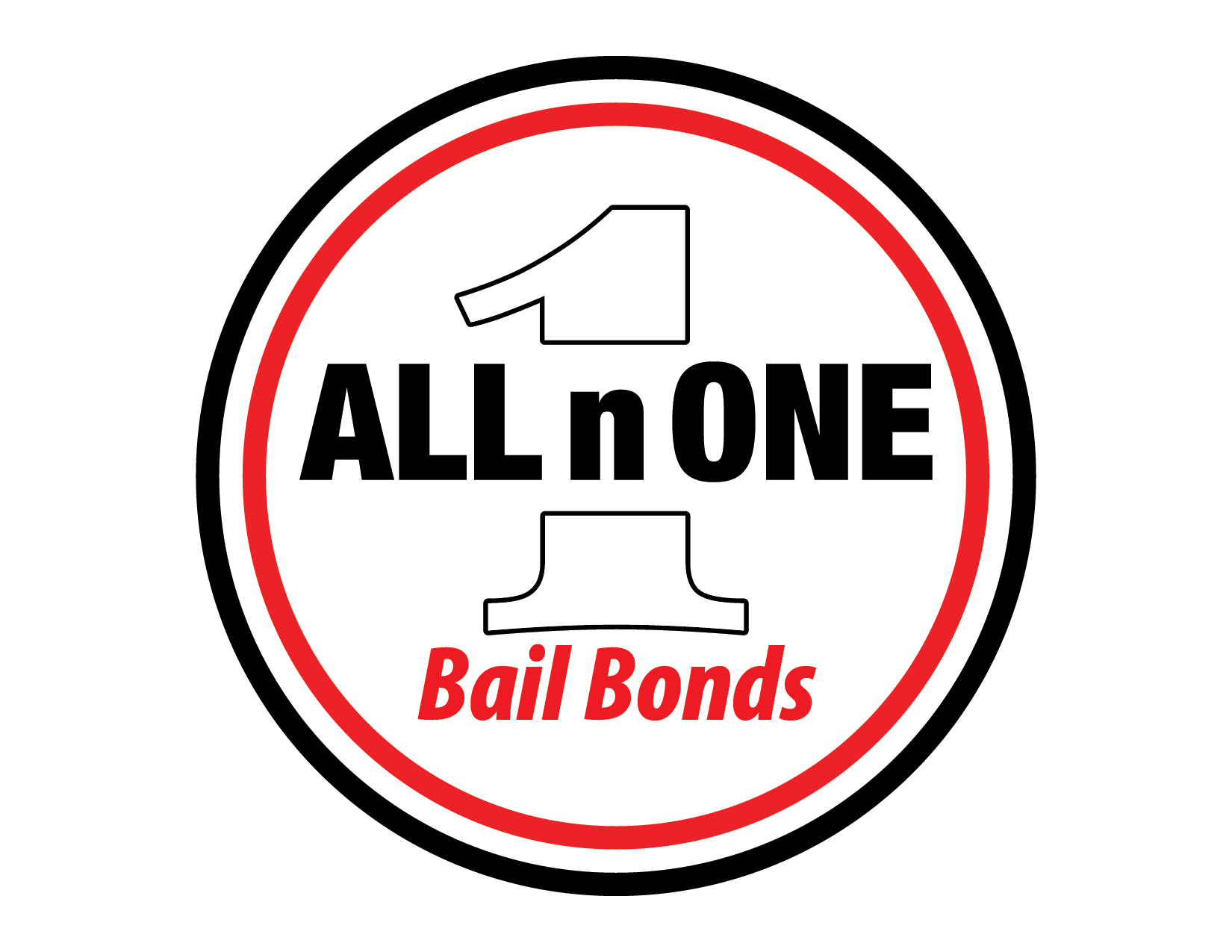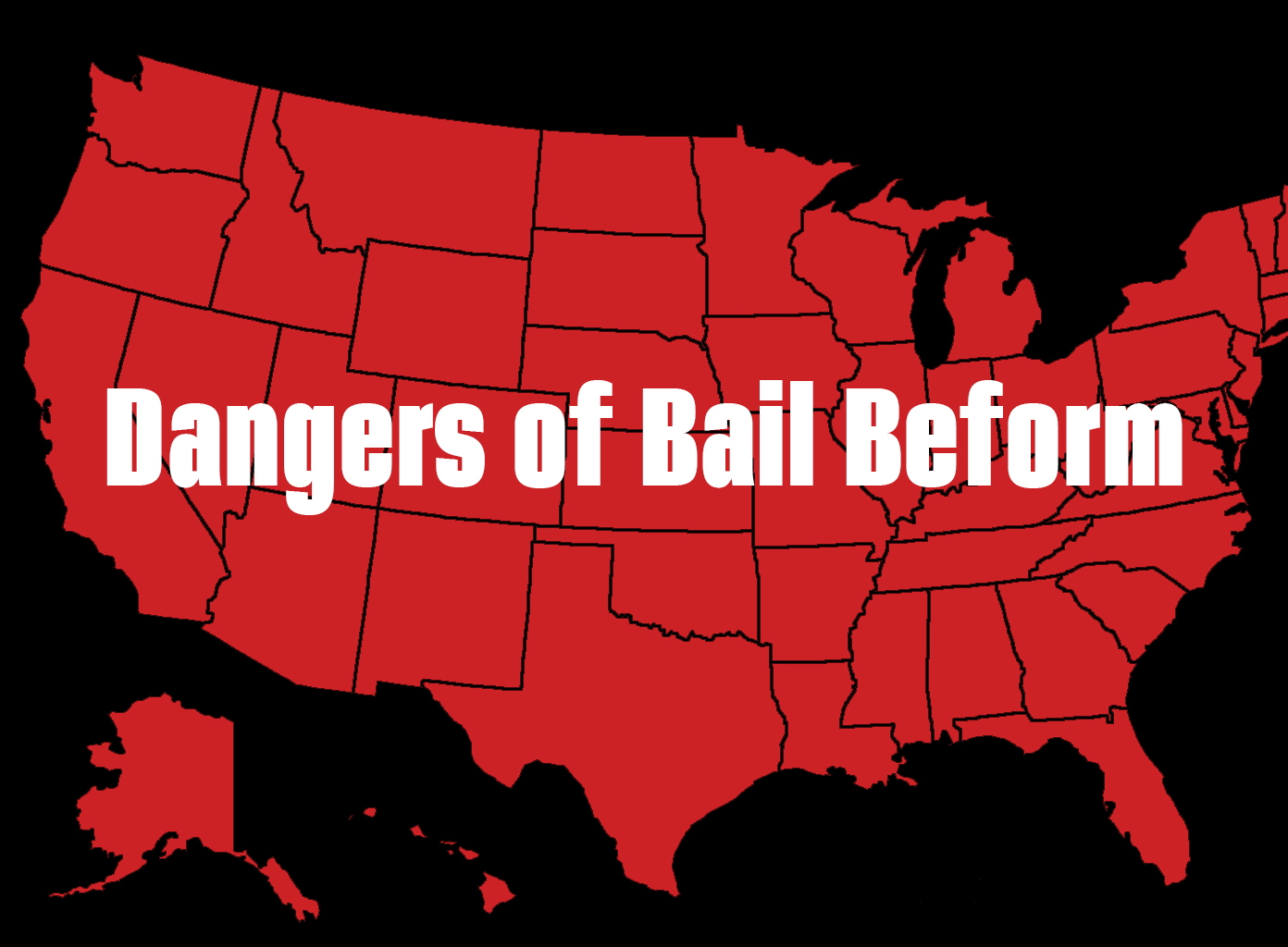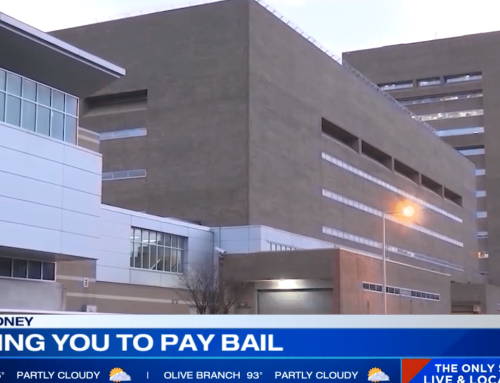In 2017, Illinois Democrats introduced a bail reform bill that passed into law. The new law mandates that courts impose the least restrictive conditions possible for criminal case defendants. The law has made the Land of Lincoln’s “Catch and Release” criminal justice problems even worse, and it has left our state’s families in danger from violent predators who belong in jail, but are released with absurdly low bails.
Bail Reform has been a hot topic for several years and some states here in the United States have already transformed the traditional bail system that our country has used for more than two hundred years. These states have removed a defendant’s automatic ability to post bail for non-capital offenses and replaced it with pretrial risk assessment programs.
Although the Eighth Amendment of the United States Constitution protects its citizens from ‘excessive bail’, ‘excessive fines’, and ‘cruel or unusual punishment’ nothing was mentioned about ‘no option for bail at all’.
The original bail system has been in place and protected all citizens’ rights in the United States since the Bill of Rights was added to the Constitution in 1789. However, additional rights were added following the Civil War in what was called the ‘Reconstruction Era’ where more specifications were added to protect the rights of all citizen regardless of racial status.
When new policies are implemented, such as ‘Bail Reform’, our rights are gradually being tampered with, state by state, across the country, with efforts imposed by a socialist agenda. Pretrial risk assessment (PSA) computer programs and the push to end cash bail may seem advantageous, but it is actually a great threat to each and every American citizen, whether rich or poor.
CALIFORNIA POSED TO ELIMINATING CASH BAIL COME 2019
California has been using pretrial risk assessments for years. But this past August, the Golden State approved a bill to become the first state in the United States to remove cash bail with the ‘California Money Bail Reform Act of 2017’. Supposedly, policy makers implemented the change as an attempt to ‘create a more equitable criminal justice system’. Their concern was that cash bail was not an option for everyone and created injustice. Currently, there is a referendum in place. If passed, it will sideline to November 2020, so the citizens can vote upon it.
WHAT IS A PRETRIAL RISK ASSESSMENT?
Pretrial risk assessment programs vary from state to state. However, as mentioned before, the objective is to take away a suspect’s eligibility to post bail as originally stated in the Bill of Rights and replace it with a computer-generated point system. In other words, bail is gradually being transformed throughout our nation from a Constitutional right to someone’s discretion. Or worse, a computer program’s calculation, which has already proven not only unsuccessful in certain states (i.e. Kentucky, New Jersey, New Mexico, etc.), but has also resulted in fatalities, needless spending and vulnerable communities.
Pretrial Screen Assessments (PSA) are created to analyze the level of risk involved with releasing a defendant on bail. The tool is intended to simplify the process of determining how likely a suspect is to show up for their court hearing as required by using a mathematical algorithm. It also predicts the probability of whether or not he or she will commit another crime upon their release based on several factors, but primarily on the defendant’s criminal history.
HOW THE PRETRIAL SCREEN ASSESSMENTS WORK
The pretrial risk assessment tools arrive at conclusions by assessing the following information about suspected criminals’ eligibility for release from jail while waiting for their court date:
- Age
- Criminal History
- Education
- Income Level
- Family History
- Zip Code
THE DANGERS OF A NO-CASH BAIL SYSTEM
California may have made plans for a no-money bail system with good intentions, but in actuality they will be taking away its citizens’ civil rights. Now, the right to bail in that state will be granted only by the decision of a judge. What’s worse is that the judge’s choice will be contingent upon a robotic conclusion. Removing the traditional cash bail system not only takes away the rights of those suspected of a crime, but also creates great danger to victims of violent offenses and the surrounding communities as a whole when violent criminals are released based on a computer-generated analysis.
IS BAIL DISCRIMINATIVE AGAINST POOR PEOPLE?
Many who are pro bail reform have argued that bail discriminates against those who are financially challenged and only benefits commercial bail bond businesses. This theory has been debated and countered that a majority of people who are stuck in jail without release before their court hearing are not there because of their financial circumstances. Annual reviews performed by the Department of Justice conducted between 1990 and 2004 concluded that defendants who were released from jail through a licensed bail bond agent were more effective than any type of pretrial service.
5 WAYS ‘NO CASH BAIL’ WILL CAUSE MORE HARM THAN GOOD:
- Lack of Research / No Real Proof of the Program’s Effectiveness: An insufficient amount of research was performed on the impact of utilizing pretrial risk assessment tools prior to implementation. Studies have indicated this type of process is more likely to increase incarceration. The failure-to-appear rate has already increased in the states where the assessments are now being utilized.
- A Robotic System Deciphering Who is ‘High Risk’ and ‘Who is Not’: Apparently, one of the arguments originally used to push for use of computerized pretrial assessment tools to replace cash bail systems was to keep the criminal justice system free from bias. Conversely, just last month, a community in Philadelphia (including citizens classified as ‘poor’) came together in opposition of the potential use of the assessment programs. Their concerns were that these computer-based systems were not only ill-equipped for deciphering who should be eligible for bail, but they are actually built on racial profiling. As long as the risk assessment programs utilize information such as, zip code, family history, education and income level within the algorithm, it’s difficult to argue that racial profiling will not be present. An article from the American Bail Coalition published this past June explains this issue in greater detail.
- The Process is Expensive: Although cost savings were among the initial benefits pitched for converting to PSA’s, regions that are using pretrial risk assessment tools are finding the process to be expensive, as it requires more court hours, more judges, more time required of law enforcement, costly equipment, etc. Consequently, counties in New Jersey have filed lawsuits to prevent bail reform after realizing the costs were unattainable.
- Using Digital Data for Risk Assessment is Dangerous and Unfair: Before California initiated the no cash bail bill, they had already converted to a pre-trial assessment procedure since 1968. What was originally created to allow low level misdemeanor arrestees to be released has resulted instead in a majority of felons being released within 24 hours of their arrest. While California judges have been relying on the digitized pre-trial assessment tool (without using their own discretion to decide whether or not defendants should be eligible for bail and for how much) dangerous criminals have been carelessly released back into society without any type of accountability. At the same time, arrestees accused of non-capital crimes, including misdemeanors, have found themselves stuck in jail long term without being vindicated or found guilty.
- Mass Incarceration: By eliminating the ability for those arrested to be released from jail on a cash bail system and replacing it with a computerized system and/or the discretion of a judge or prosecutor, citizens have lost their immediate civil right to be free until proven guilty. This method has created larger jail populations and approximately two-thirds of California’s jails consist of unsentenced inmates. A massive inmate population results in higher costs for the correctional institutions. Obviously, higher costs for correctional institutions will flow over to the tax payers.
THE BOTTOM LINE
The entire bail reform logic must be carefully considered. Probably, the best way to encourage lawmakers to do so is to ask each one to visualize him or herself as someone who has been arrested for a crime. Then consider, “Would you want to depend upon permission for the option of bail from a robot or biased judge? Or would you just be thankful for a Constitutional right to bail given by your forefathers?”
Fortunately the State of Tennessee has other considerations, to deal with right now , but this will come up in the not to distant future!





